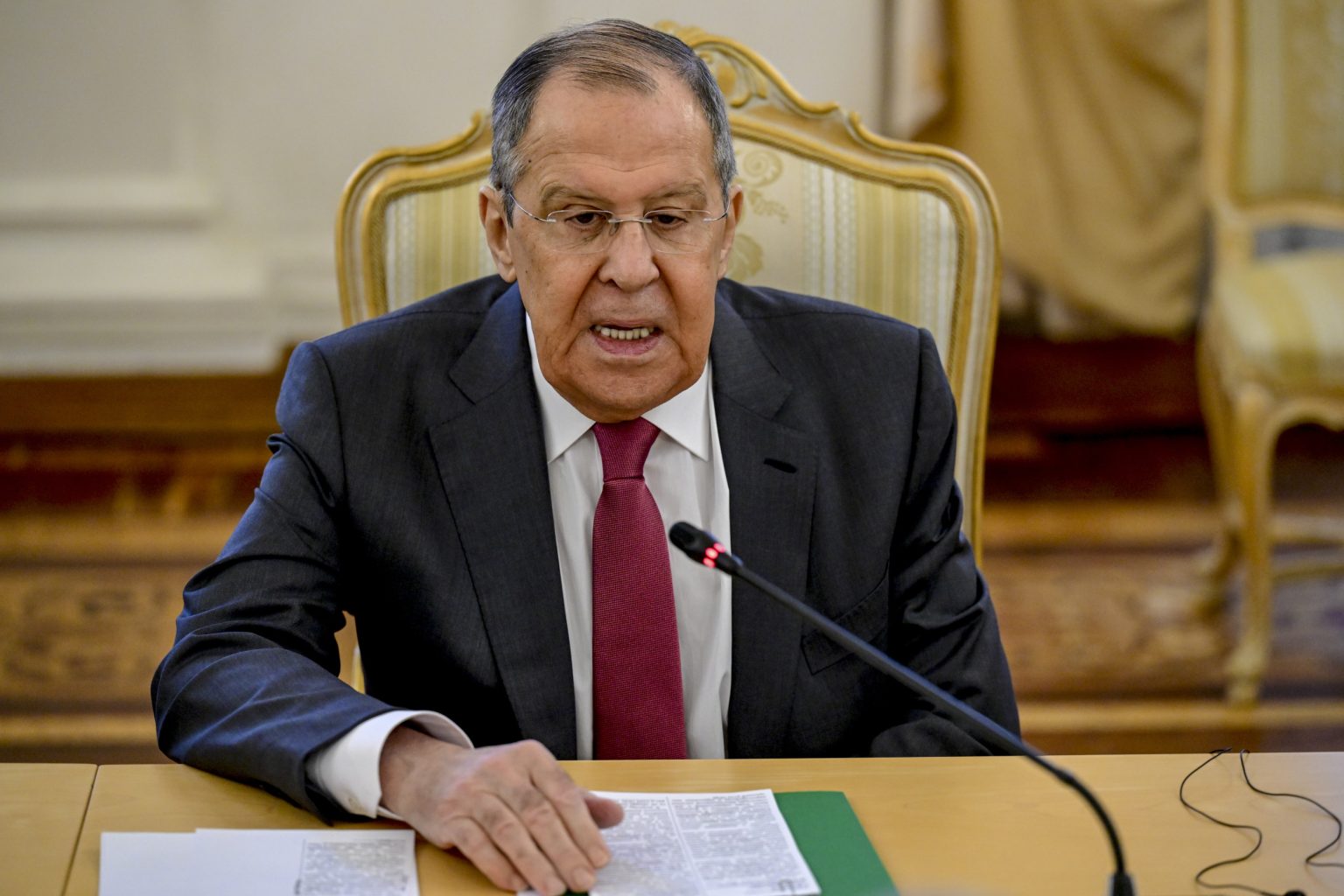Russian Foreign Minister Sergey Lavrov warned the United States and Western nations of the potential for a direct conflict with Russia during a video address to participants in the Moscow Non-Proliferation Conference. The ongoing tensions between the U.S. and Russia stem from Putin’s invasion of Ukraine in February 2022, with the U.S. House of Representatives recently approving over $60 billion in aid to Ukraine. Lavrov expressed concern that the West’s stance in the Ukraine conflict could lead to catastrophic consequences and push nuclear powers towards a direct military confrontation.
Lavrov highlighted the deteriorating situation in international security, blaming the U.S. and its allies for seeking to inflict a “strategic defeat” on Russia and continuing to deter the country. He expressed particular concern about the involvement of the U.S., United Kingdom, and France in supporting the “criminal Kyiv regime” and organizing provocations that could escalate the nuclear threat. The Russian foreign minister’s statements reflect the increasing tensions and risk of a direct military confrontation between nuclear powers, with the U.S. and Russia holding the majority of the world’s nuclear weapons.
The Russian government’s decision to end its participation in the New START treaty in 2023 was influenced by America’s support for Ukraine, further complicating arms control and strategic stability dialogue between the two countries. Lavrov emphasized that Russia sees no basis for such dialogue in the midst of a total hybrid war being waged against the country. The comments from Lavrov coincide with Polish President Andrzej Duda revealing discussions about hosting American nuclear weapons on Polish territory, prompting warnings from the Kremlin about potential countermeasures to ensure Russia’s security.
The escalating tensions between Russia and the West raise concerns about the potential for a direct military conflict between nuclear powers, with Lavrov cautioning about catastrophic consequences of such a scenario. The situation reflects a broader deterioration in arms control, disarmament, and nonproliferation efforts, with the blame placed on the U.S. and its allies for pushing the world closer to the brink of conflict. The comments from Russian officials underscore the urgency of addressing these challenges and finding ways to de-escalate tensions to prevent a dangerous confrontation with far-reaching implications.
As the U.S. and Russia remain at odds over the situation in Ukraine and the broader geopolitical landscape, the need for diplomatic engagement and strategic dialogue becomes increasingly critical. The specter of a direct military confrontation between nuclear powers underscores the high stakes involved and the importance of finding common ground to prevent such a scenario. The warnings from Lavrov and other Russian officials serve as a stark reminder of the risks posed by escalating tensions and the urgent need for international cooperation to maintain peace and security in a complex and interconnected world.


